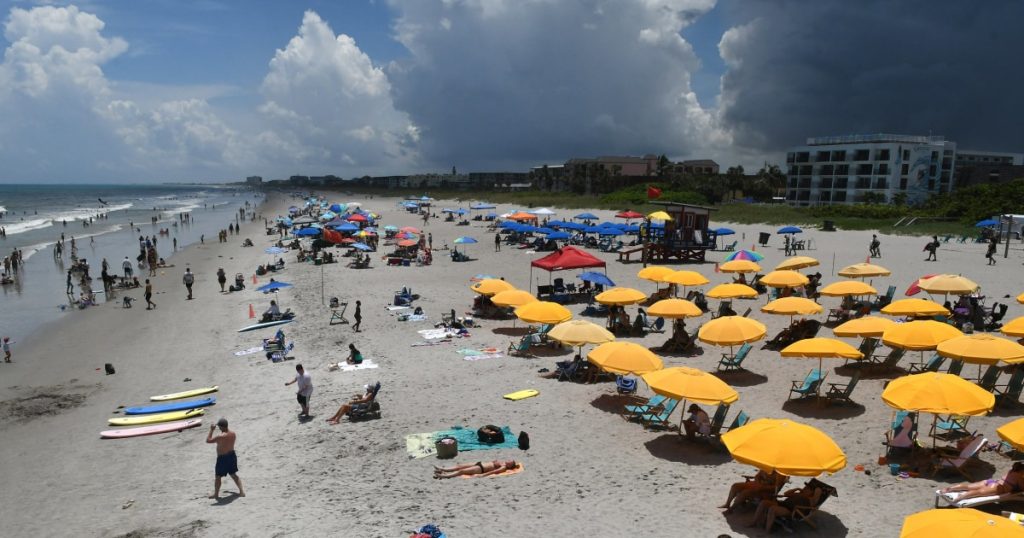A reverse migration trend out of Florida is emerging, not only among newcomers but also among longtime residents who are leaving the state due to rising costs of living and discomfort with the state’s increasingly conservative policies. Donna Smith, who spent over three decades in the Tampa Bay area, decided to leave the state for Pennsylvania in December, citing politics and rising insurance costs as primary factors in her decision. Growing up in Oklahoma, Smith considered herself a Republican, but shifted towards identifying as a Democrat as Florida’s politics veered to the right. She described a shift in the atmosphere in Florida, from a laid-back beach vibe to a constant and stressful environment, with politics encroaching on everyday life.
The shift in Florida’s political landscape and rising costs, such as exorbitant insurance premiums, have led longtime residents like Smith to seek refuge in states where politics are not as heavily present in daily life. Smith’s decision to move to Pennsylvania was also influenced by the proximity to her adult children, despite the majority of voters in her new county supporting Donald Trump in the last election. She noted that in Pennsylvania, politics are not as openly discussed and people do not wear their political beliefs on their sleeves like in Florida, creating a less oppressive atmosphere in her new community. Smith’s reason for leaving Florida highlights a growing trend of residents seeking more affordable living conditions and a less politically charged environment.
The reverse migration trend out of Florida is not isolated to Smith’s experience but is reflective of a larger sentiment among residents who feel disenchanted with the state’s policies and rising costs. Recent actions by the state government, such as crackdowns on undocumented immigrants, bans on transgender care for minors, interference in school curriculum, and restrictions on abortions, have contributed to a growing sense of discontent among residents. The shift in policies and the conservative rhetoric in Florida have led residents to seek alternative living arrangements in states where political tensions are not as palpable, and living costs are more manageable.
Smith’s experience serves as a microcosm for the larger trend of residents leaving Florida for states with more favorable living conditions and political climates. The combination of rising costs of living and discomfort with the state’s conservative policies has fueled a reverse migration trend that is reshaping the demographics of Florida and other states. As residents seek more affordable and politically neutral environments, states like Pennsylvania are becoming increasingly attractive as destinations for relocation. The shift in resident demographics and the reasons behind it highlight the complex interplay between political environment, cost of living, and personal values in determining where people choose to live.
The reverse migration trend out of Florida signifies a broader shift in the social and political landscape of the state, as residents grapple with rising costs, political discord, and a changing cultural atmosphere. The decision to leave Florida, as seen in Smith’s case, is multifaceted and influenced by a combination of economic, political, and personal factors. As Florida continues to experience changes in policy and political ideologies, the reverse migration trend may continue to gain momentum, reshaping communities and demographics in both Florida and states that are becoming increasingly attractive to former residents. The impact of this trend on Florida’s economy, social fabric, and political dynamics remains to be seen, but it reflects a growing sentiment among residents seeking refuge in more favorable living conditions and political climates.


